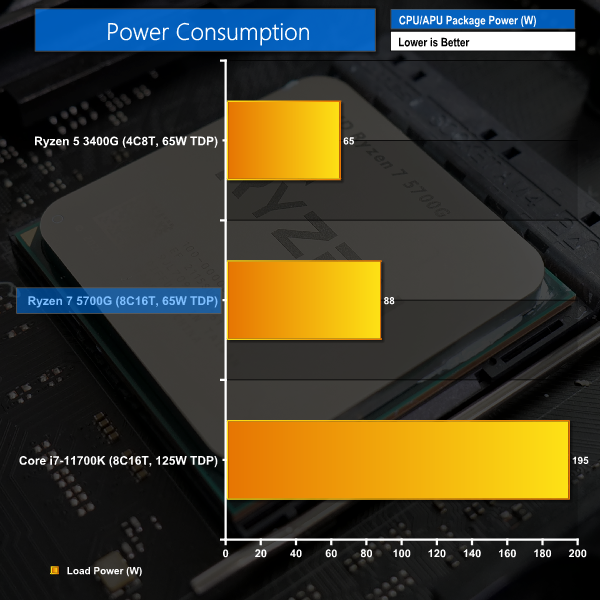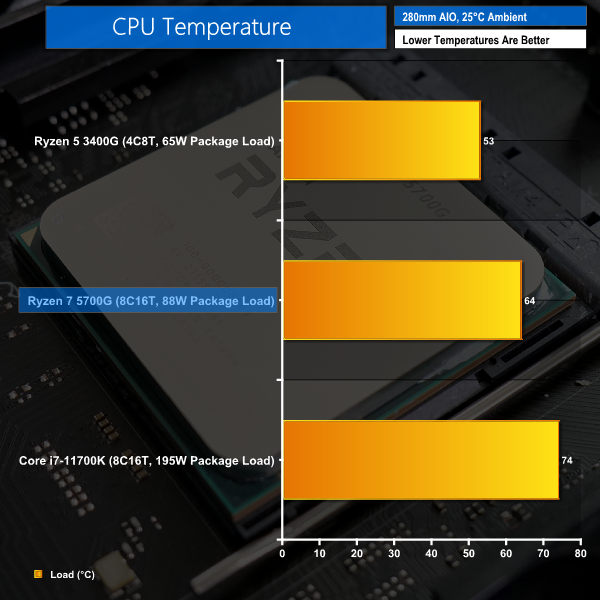We leave the system to idle on the Windows 10 desktop before taking a power draw reading. For CPU load results, we read the power draw while producing five minutes' worth of loading in the Cinebench nT rendering test.
The reported package power consumption of each processor is shown in the chart. The same test parameters are used for temperature readings.
Power Consumption
Power draw readings are accurate to around +/-5W under heavy load due to instantaneous fluctuations in the value. We use a Titanium-rated Seasonic 1000W Prime PSU.
The Ryzen 7 5700G uses its full complement of 88W of package power, as dictated by the 65W TDP. This is easy to cool in a SFF installation – especially when compared to the Intel Core i7. But AMD’s APU also leaves more performance and frequency headroom to extract via PBO.
Temperatures
Temperature recordings were taken using the Fractal Celsius+ S28 Prisma 280mm AIO CPU cooler at full fan and pump speed. Ambient temperatures were around 25°C.
Using our 280mm liquid cooler, there were no cooling concerns with the Ryzen 7 5700G. The bundled Wraith Stealth cooler will be fine – as driven by the PB2 algorithm. But 64C for 88W package power under a 280mm AIO does justify some spend on even a £20-30 budget air cooler upgrade in my opinion.
 KitGuru KitGuru.net – Tech News | Hardware News | Hardware Reviews | IOS | Mobile | Gaming | Graphics Cards
KitGuru KitGuru.net – Tech News | Hardware News | Hardware Reviews | IOS | Mobile | Gaming | Graphics Cards




